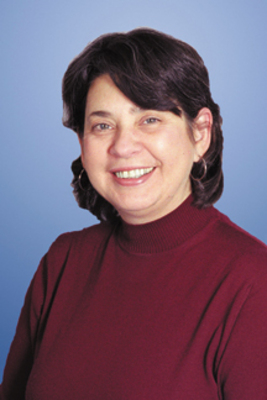On a quest to understand her family’s past in Cuba and settlement in the United States, a New Jersey professor blended her own personal story and North Hudson history in a new book about Cubans in Union City.
In her work The Cubans of Union City: Immigrants and Exiles in a New Jersey Community, Yolanda Prieto, a former Union City resident, describes the Cuban revolution, the exodus that followed, and how so many of those who left made Hudson County their new home.
“Even though I didn’t live in Union City for a long period of time, about eight years, I was interested in understanding the settlement of Cubans in Union City,” said Prieto. “I was writing about myself, I thought. Even though it is a study, I was writing about my own history.”
She, like many others, experienced the change in Cuba and the desperation to leave firsthand.
“When the revolution happened, I was 11 years old,” said Prieto. “I, along with many members of my family and friends, was very excited in the beginning, but soon after that, my parents, especially my father, became really disaffected.” The reason, she said, was that there were signs the revolution was turning for the worse, as the relationship between the United States and Cuba deteriorated.
But by the time she was faced with the decision whether to leave at age 21, Prieto said she wanted to stay in Cuba.
“I was very involved with the church, and I thought that we, as Christians, should stay behind to give testimony, in a sense, of what we could do in Cuban society,” she said. Many Christians had already gone, she said, and if they all left, there would be no one to carry their values and traditions even under a harsh communist regime.
However, remaining on the island was “not a popular decision,” she said, and her father had other plans for his family.
“My father was always very adamant about leaving together or not leaving at all,” said Prieto. “Family unity is so important, and he felt that he was not going to leave me behind, and he said, ‘Well, if you won’t go, we won’t go,’ so I decided to come.”
Traveling between Cuba and the United States, she said, wasn’t easy, and “If we would have separated then, it would have been a permanent separation or, at least, a long separation.”
All together, her family left Cuba in 1968 and settled in Union City, what she calls a vibrant, working class community. Prieto wrote in her book that in order to survive, her father, who had been badly injured in an accident at work in Cuba, had to come out of his retirement. And her mother, a seamstress, had to find work outside the home. Overall, Cubans were very successful in Hudson County.
“Cubans were very successful because they brought skills with them, and U.S. policy toward the group helped them also,” said Prieto.
She, too, worked locally for a few years, while living in town with her parents, before starting her graduate degree in sociology at Rutgers University in New Brunswick. She later taught about the subject at Ramapo College of New Jersey for 30 years.
“As I say in the book, independent of my father’s good intentions, it was very difficult for me to come, but as time went on, I got very used to it,” said Prieto.
Union City has changed a great deal since then, she said, and many Cubans have left the town for more affluent areas, like Bergen County.
“Union City is no longer Cuban, or predominantly Cuban, but symbolically, it is. It’s like the Cubans have left their mark.” – Yolanda Prieto
________
Symbolically Cuban
“Union City is no longer Cuban, or predominantly Cuban, but symbolically, it is,” said Prieto. She cited Celia Cruz Park and Jose Marti Middle School as proof. “It’s like the Cubans have left their mark.”
Prieto, who has since moved to Miami, said she now goes back to Cuba every three or four years, and that she agrees with President Barack Obama’s recent decision to loosen some restrictions on the 47-year-old embargo on Cuba, allowing Cuban-Americans more freedom to visit and send money to family members overseas.
“I think that deep down, he would like to lift the embargo,” said Prieto. “I don’t think he is going to be able to do it during his first term because he still has a lot of opposition. I think what he is doing about family trips and communication is very good. So many years of embargo have not worked to change the regime in Cuba, so it probably would be better if Cuba had influences from the United States and other parts of the world.”
Amanda Staab can be reached at astaab@hudsonreporter.com.
